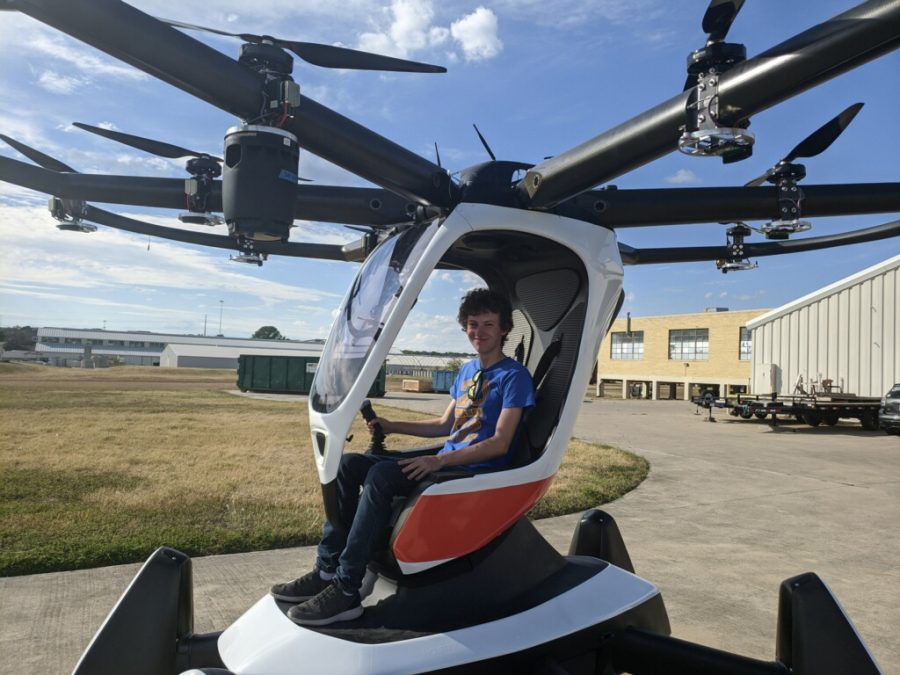Students in STEM Provide Fuel for the Future
October 15, 2021
Students interested in science can take a range of electives, like computer science, and organic chemistry, throughout high school to learn about possible career opportunities in STEM fields. However, many students still desire real-life experience. In order to become better prepared for situations after high school, some students choose to apply for internships.
LASA’s second year biotechnology class provides such opportunities for students. Biotechnology teacher Joseph Oleniczak said one unique characteristic of the course is the ability to be certified in lab work during a student’s junior year, allowing many students to participate in biotechnology internships senior year. According to Oleniczak, there are 23 students currently participating in these internships.
One such student is senior Soh Nishiyama, who works at BioBQ. Nishiyama said the Austin-based company aims to create a lab grown version of brisket to bypass all the carbon dioxide emissions and animal cruelty processes that are associated with raising livestock.
“What the company is trying to do is to make meat from cultured cells,” Nishiyama said. “So for now, I’m just doing research on how standard muscle stem cells and cows, how they differentiate into the muscles.”
Two things that Nishiyama said he enjoys about his internship are the ability to do hands-on lab work and that the basis of the internship and the company is genuinely related to his interests. He said that the work he is doing will help him develop his understanding of the field of biotechnology and microbiology.
“I think I enjoy biochemistry a lot, so that’s the major I’m going for,” Nishiyama said. “I want to understand molecular biology and molecular biology in organisms. I feel like the muscle is one type of that, and I think this internship will help me understand a bit more about how muscles and stem cells differentiate.”
Nishiyama said his experience illustrates the importance of internships, especially in the case of when it aligns with one’s interests. Nishiyama was previously not too sure about pursuing a major in molecular biology, but with this internship, his interests have been organized and his knowledge is more tailored for that field.
Another student in a biotechnology internship is senior Siddh Bamb. He works at Macromoltek, a company that develops antibody solutions to different illnesses.
“My current tasks are to develop a protein sequence clustering tool that helps them report their data to clients in a more efficient manner,” Bamb said. “They actually had some different things that they did with antibodies for COVID-19. Their projects this past year were pretty relevant to the pandemic and other big health crises that the nation is facing. So, it seems like it’s meaningful work.”
Though Bamb is working for a biotechnology company, his internship does not require him to perform hands-on lab work. Rather, Bamb works on programming tasks for the company.
“As someone who’s interested in computer science, I definitely learned about how quality assurance is present in the tech field, or how different parts of your code have to be reviewed,” Bamb said. “It’s more of a philosophy thing than having to deal with the lab work itself.”
Bamb may have been trained to intern in the field of biotechnology, but he said he still enjoys combining his biotechnology experience with computer science. Bamb said that regardless of one’s interests, an internship is still an internship, and is an opportunity to be taken.
“Internships are pretty useful opportunities to get experience with something you’re interested in,” Bamb said. “Even if you’re not sure which fields you like, just working in that field can reveal a lot about what you can expect later on after high school or college.”
Senior Tyler Hill agrees that working with companies is helpful in high school. Hill is working under contract with Lift Aircraft, a company whose goal is to create a one-seater manned drone for commercial use.
“They have a drone that has 18 blades, and it carries one person, and it can land on water,” Hill said. “It’s about 400 pounds, and you don’t need a license to fly it. There’s a device that will go on the flying machine that they’re making, and I’m coding it for some translation function of different codes.”
According to Hill, the work may seem similar to a computer science internship, but contract work is not as easy to obtain as an internship. Usually, they require more steps and digging than an internship, and will oftentimes be more professional and secretive.
“I knew a guy and met another guy,” Hill said. “He said, ‘Hey, this person has similar interests to you.’ And then I went on a phone call with that person, and he said, ‘You should go out and to the hangar and meet these people.’”
Despite this, Hill found such an effort to be favorable. Bamb, Nishiyama, and Hill all agreed that their internships helped them explore their interests in science and give them proper workplace experience that high school students sometimes struggle to find. Hill said he recommends students do internships if they can.
“I’d say yeah, if you can, you totally should. I met a lot of cool people,” Hill said. “I think real-world experience is an excellent part. It’s an essential part of your education. There’s stuff you just can’t learn in the classroom. And I mean, everyone says that, but it’s true.”


